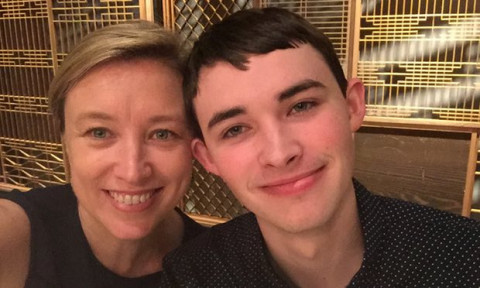
Autism Awareness Australia head says her son almost paid $3,000 to a debt recovery firm when he did not owe Centrelink anything.
A call from a private debt collector was the first 21-year-old Jack Rogerson learned of his $3,000 debt to Centrelink.
Rogerson, who is autistic, was confused and unsure of how to explain himself. He began preparing to pay the debt recovery firm Dun & Bradstreet, which has a $10.8m contract with Centrelink to chase down welfare recipients for years-old debts.
But before doing so he mentioned the call to his mother, who intervened.
Nicole Rogerson, who is the head of Autism Awareness Australia, said finding out that her son was being “heavied” by debt collectors was a huge wake-up call. She fears others with an intellectual disability are at risk of paying money they may not owe.
“I’m so concerned for families who are a lot more vulnerable than we are,” she said. “Jack’s at least got two parents and we can work this out for him. It will be horrible having to deal with Centrelink but at least we can do it, and we will because it’s the right thing to do.
“This hard line of the government is just heartless to the core.”
Her son’s debt related to three months when he was on a disability benefit, just before he began working as a chef’s apprentice.
He was not working while claiming from Centrelink during those three months, and his mother said the debt was false, but she and her son were lucky enough to be in a position to fight it.
The family’s circumstances appear consistent with others who have complained about Centrelink’s new automated compliance system, which relies on data-matching reported income with information held by the Australian Taxation Office.
The system, in some cases, is averaging a person’s yearly income across the 26 Centrelink fortnightly reporting periods, making them ineligible to receive benefits at any point.
Centrelink staff appear to be aware of the problem. In an operational webpage providing guidance on what documents are acceptable to verify income, Centrelink says:
If employment is for a part of a year only, averaging over 12 months will not result in a correct result if the customer should have received a full rate at other times of the year.
Dun & Bradstreet is one of three debt collection firms being used by Centrelink. The other two appear to be Probe Group and Australian Receivables, which are both on $2.5m contracts.
The government continues to defend the system. The social services minister, Christian Porter, said on Tuesday it was working “incredibly well” and gave individuals a fair chance to respond when discrepancies were detected.
“What you’re saying to me is that if people over-respond, or if people find it inconvenient, then the response to that from a government should be to not do it,” Porter said.
“Now, if we don’t do it, that is $4bn worth of taxpayers’ money that got wrongfully paid that can never be recouped.
“I think that this is about as reasonable a process as you could possibly derive.”
Other advocates fear that the new system may be particularly difficult for those with a disability.
Advocacy for Inclusion’s chief executive, Christina Ryan, said some people with a disability may not be able to read the letters sent by Centrelink.
“It’s particularly concerning for people who have no real resources on many levels to actually respond,” she said. “And the part that worries me is that this is how people can be bullied into paying a debt that they don’t actually have and causing themselves significant financial hardship.”